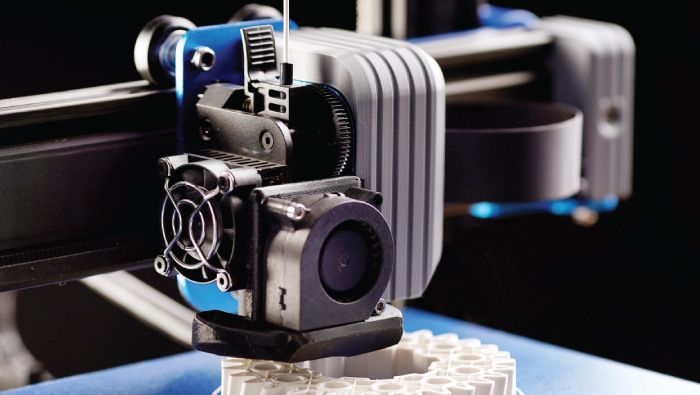
MUSCAT- In a first for the Omani oilfield sector, Petroleum Development Oman (PDO) has teamed with Spare Parts 3D (SP3D), a French startup, to assess the 3D printability of 150,000 unique spare parts, the latter has revealed in a press statement.
Paris-headquartered Spare Parts 3D, a specialist firm that helps businesses digitalize their spare parts inventory through additive manufacturing, said a PDO team has processed 150,000 coded spare parts to define a 3D printing adoption matrix based on technical feasibility and economical attractiveness.
The roughly six-month-long exercise was made possible thanks to SP3D data-driven funnel approach methodology, its unique machine-learning based software DigiPART, the availability of material coding information records and the commitment of a multidisciplinary PDO team, SP3D stated.
PDO now has an agile decision-making tool to enable its 3D printing deployment roadmap, speeding up Additive Manufacturing (AM) deployment by an estimated two years, and helping the company to remain at the forefront of innovation in the Middle East, the French start-up said. The information provided was extracted from PDO ERP (Inventory management; Purchase Orders and Material Coding) limiting the time required to collect data on such a large number of parts.
The press statement quoted Mohammed Yahyai – 3D Scoping workstream Lead, Lead Rotating Equipment Engineer at PDO, as saying thus: “After having selected non-suitable parts, ourselves, we contracted SP3D for their ability to enrich our partial dataset. This helped to select the right spare parts to focus on for PDO’s AM journey.”
To efficiently sift through 150,000 coded parts, DigiPART ran a number of algorithms, among which is the Semantic Recognition Algorithm (SRA). The SRA read through the parts descriptions and identified part names that are earmarked for further printability analysis. In parallel, DigiPART precisely defined the functional specifications of a part.
This level of automation and precision is the key to efficiently identifying the right AM material and print method like Selective Laser Melting (SLM), rapid casting, or material deposition on large amounts of data.
The data-driven outputs for these opportunities will support the 3D printing deployment roadmap. “PDO now has access to an agile decision tool covering over 60,000 spare parts. Customised business case filters enable PDO to select the most relevant parts to print and install or switch from physical to digital inventory,” added Paul Guillaumot, CEO of Spare Parts 3D.
The analysis will help PDO to realise the potential to print in Oman. SP3D regrouped the outcome to show the AM solutions and materials combinations with the most potential to increase local added value, including expected annual demand in US dollars. It will enable PDO to provide input to local investment decisions and support the localisation strategy based on facts, not estimates, the company explained.
“The ability to provide valorisation on AM potential is a first in Oman and of great support to accelerate In-Country Value initiatives and build our Industry 4.0 ecosystem in the sultanate,” said Sulaiman Ruqaishi, PDO In-Country Value Business Development Lead.
The partnership allows PDO to accelerate its AM journey based on an extensive and comprehensive analysis. Enriching PDO’s existing data via the use of algorithms enabled the creation of a 3D printing parts selection matrix, including both technical and commercial feasibility considerations.
“Our fundamental issue was to logically and quickly screen and identify 3D printing candidates to define PDO AM scope and move forward. With the support of our partner, SP3D PDO is now able to make informed decisions, accelerate deployment and support stakeholders,” added Philippe Dupont, Head of Material Procurement & Inventory Management, PDO.